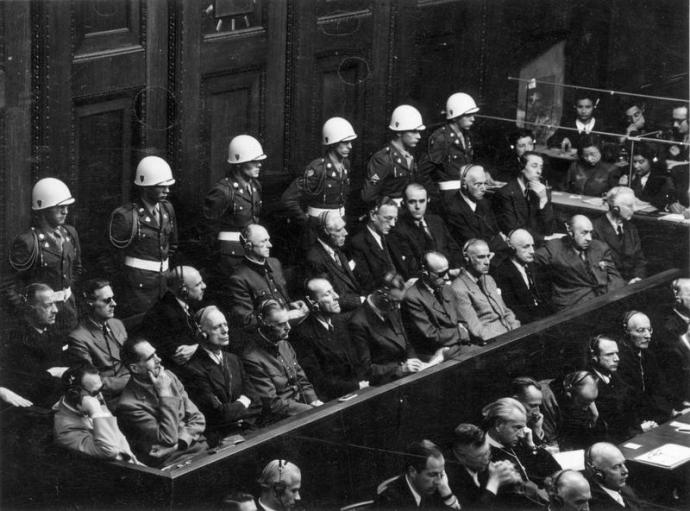As the debate around amending the Law of Return is heating up, a variety of players, some with little vested interest in its application, are quick to offer their insights.
I am an Israeli citizen, born in the Former Soviet Union and brought up in the United States. I have worked closely with both immigrant communities, and in the past eight months have led a team assisting thousands of families, who have fled from the current war in Ukraine.
So, it may surprise you when I say that it is absolutely necessary to amend the law if Israel is to have a robust, fair and transparent immigration policy.
Legislated in 1950 and amended in 1970, the Law of Return was a unique expression of Israel’s Jewish identity as the ancestral home and safe haven for every Jew targeted by antisemitism. However, today the law is counter-productive to its original purpose, preventing equitable integration of Jews and creating a potential threat to the Jewish character of Israel.
The legislation mirrors those targeted by the Nazi Nuremberg Race Laws and confirms the right to Israeli citizenship for Jews, as well as their children and grandchildren. At the time of its passing, Israel was a young, economically disadvantaged country embroiled in constant wars.

It was a highly unattractive immigration option and the inclusion of children and grandchildren of Jews was more a symbolic gesture of poetic justice in the face of Nazism than an invitation or expectation that descendants of Jews would ever make Israel their home.
However, as the law of unintended consequences would have it, just two decades later, following the fall of the Iron Curtain in 1989, Israel became a preferred destination for close to a million Russian immigrants. At the very start, the overwhelming majority (over 90%) of Russians coming to Israel were Jewish.
Those numbers plummeted fast, however, to 46% in 1998 and 28% in the current wave of immigration from Russia and Ukraine. The outcome of this policy is that today close to 400,000 non-Jewish Russian immigrants live in Israel.
The one-out-of-four ratios of Jews in the current immigration wave from Ukraine and Russia closely reflect these countries’ Jewish demographics.
The war in Ukraine
Since the beginning of the war in Ukraine, millions of refugees have left both countries. However, what was meant to be a mechanism to protect Jews from persecution became a ticket to a modern western country with a generous immigration package for people who never connected to their Judaism back home.
Unfortunately, instead of investing its resources into the proper integration of Jews, the Israeli immigration system became clogged and spread too thin to cater to the people it was meant to serve.
Officials at the Ministry of Aliyah and Integration are overwhelmed with a backlog of thousands of cases they can’t process fast enough. Some 40% of new immigrants were not able to access ulpan Hebrew classes for a lack of teachers.
FOLLOWING THE September draft in Russia, close to 10,000 people arrived in Israel on tourist visas and are now waiting for two to three months for their aliyah appointments.
And regular Israeli citizens wishing to renew their passports are forced to wait five to six months since the immigration offices are packed. And all this with just a modest 45,000-person increase in the number of olim, 30,000 of whom are not Jewish.
Looking at the greater Diaspora community, according to the Berman Jewish Databank 2020 study, besides the eight million core Jews (defined as people with an exclusively Jewish identity), four million more have a single Jewish parent (or an additional identity), and an additional five million have no Jewish parents but are nonetheless eligible for aliyah under the grandchild clause or as members of extended families.
Proposed amendments to the Law of Return would annul the grandchild clause and affect these five million, who are hardly connected to their Jewish identity.
This year’s Putin-induced immigration wave is a cautionary tale of what can happen within a couple of decades on a much greater scale. While it is hard to imagine significant immigration from Western countries, geopolitics and economics can be quite unpredictable.
In just a generation or two, we may find ourselves with a Diaspora in which for every Jew there are two to three non-Jews eligible for and interested in acquiring Israeli citizenship. This would understandably hamper Israel’s ability to absorb Jews and threaten Israel’s identity as a Jewish state, contrary to the original intent of the Law of Return.
Elaborate, sometimes illogical bureaucracy
Israeli immigration authorities already try to curb aliyah by instituting elaborate, sometimes illogical bureaucracy.
When I came on aliyah in 1995, I presented the Soviet-issued birth certificates for myself and my mother, which registered me, my parents and my maternal grandparents as Jews. The whole process took four hours.
People making aliyah today need to provide dozens of documents, including apostilled police records from every country they ever lived in as adults, army and work documents, and more. Seventy-year-olds are asked for their parents’ marriage documents from a century ago. Adult children born abroad to Israeli citizens are sometimes required to furnish ultrasound images. You get the picture.
There is a simple solution to this problem – modifying the Law of Return to reflect its original purpose, opening Israel’s doors to people truly affected by antisemitism. By doing so, Israel can invest its resources into encouraging aliyah from within Jewish communities, provide equitable immigration services and institute streamlined and fair immigration procedures.
Almost 100 years after Nuremberg, it’s time to free Israel’s immigration policy from Hitler’s influence.
The writer is the director of Israel operations at Vaad Hatzalah – the Ukrainian Jewry Rescue Committee and Israel director at Am Echad, an organization dedicated to strengthening the Diaspora-Israel relations.
